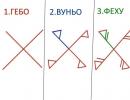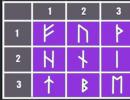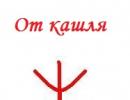Valery Kuzmin
| Ambassador Extraordinary and Plenipotentiary of the Russian Federation to Moldova | ||
|---|---|---|
| July 27 - April 5 | ||
| Director of the Department for Relations with the Subjects of the Federation, Parliament and Social and Political Organizations of the Ministry of Foreign Affairs of the Russian Federation | ||
|---|---|---|
| 1 october - July 27 | ||
| Ambassador Extraordinary and Plenipotentiary of the Russian Federation to Sudan | ||
|---|---|---|
| 7 july - January 21 | ||
Moscow
2) Diplomatic Academy of the Ministry of Foreign Affairs of the Russian Federation (1998)
Career
Higher education: graduated in 1975, in 1998 - higher diplomatic courses of the Diplomatic Academy of the Russian Foreign Ministry. Fluent in English, Arabic and French.
Since 1975 - in the system of the Ministry of Foreign Affairs of the USSR, he held various positions in the central apparatus of the Ministry of Foreign Affairs and abroad, including in 1975-1980 at the USSR Embassy in Libya, in 1985-1990 - in Tunisia.
Diplomatic rank
Awards and prizes
Notes (edit)
Links
- List of ambassadors of the Russian Federation to the states of Europe
- List of ambassadors of the Russian Federation to African states
Valery Kuzmin:
Kuzmin, Valery Borisovich (born 1941) - Soviet hockey player, defender.
Kuzmin, Valery Ivanovich (born 1953) - Russian diplomat.
Kuzmin, Valery Ilyich (1918-1983) - participant of the Great Patriotic War, Hero Soviet Union.
List of diplomatic missions of RussiaRussia, due to its geopolitical position, as well as thanks to the successes of Soviet diplomacy, has one of the largest networks of foreign diplomatic missions. Russian embassies and consulates operate in almost every country in the world, with the exception of some states in Central and South Africa, Central America, Bhutan, and most countries in Oceania.
The official state representations of Russia abroad include:
embassies (strictly speaking, only they are diplomatic missions);
consular offices (consulates general, consulates);
permanent missions to international organizations. The following may operate as part of an embassy:
trade mission;
center of science and culture (representative office of Rossotrudnichestvo).
List of ambassadors of the Russian Federation to African statesThe article presents a list of Ambassadors Extraordinary and Plenipotentiary Russian Federation in the states of Africa. After the date of appointment or dismissal, there is the number of the corresponding Decree of the President of the Russian Federation.
List of ambassadors of the Russian Federation to the states of EuropeThe article presents a list of the Ambassadors Extraordinary and Plenipotentiary of the Russian Federation to the states of Europe. After the date of appointment or dismissal, there is the number of the corresponding Decree of the President of the Russian Federation.
Under the Vatican and the Order of Malta (equated to sovereign states) until March 17, 2010, not ambassadors were appointed, but representatives of the Russian Federation. In accordance with the Decree of the President of the Russian Federation of December 03, 2009 No. 1330 "On the establishment of diplomatic relations with the Vatican", diplomatic relations were established between the Russian Federation and the Vatican. And in accordance with the Order of the Government of the Russian Federation of March 17, 2010 No. 359-r, the Representation of the Russian Federation in the Vatican was transformed into the Embassy of the Russian Federation in the Vatican.
Embassies, consulates and other missions of the USSR abroad were transferred to the Ministry of Foreign Affairs of the RSFSR from the abolished Ministry of Foreign Relations of the USSR by Decree of the President of the RSFSR No. 291 of December 18, 1991 "On the Foreign Policy Service of the RSFSR." At the same time, the ambassadors and representatives of the USSR were not reappointed. The dates of appointment of the ambassadors of the Russian Federation, who were appointed as ambassadors of the USSR, are not indicated in the list.
In the periods between the dismissal of one and the appointment of a new ambassador, his functions are performed by the Charge d'Affaires of the Russian Federation, appointed from among the senior diplomatic staff of the embassy (in some countries such periods last for several months).
In accordance with the Decree of the President of the Russian Federation of October 15, 1999 No. 1371 "On the procedure for assigning and maintaining diplomatic ranks and on the establishment of a monthly salary supplement for diplomatic rank" to persons holding the post of Ambassador Extraordinary and Plenipotentiary of the Russian Federation (in a foreign state) the diplomatic ranks of Ambassador Extraordinary and Plenipotentiary, Ambassador Extraordinary and Plenipotentiary of the 1st class are assigned.
List of extraordinary and plenipotentiary envoys of the 2nd class of RussiaThe list includes diplomats of the Russian Federation who received the diplomatic rank of Ambassador Extraordinary and Plenipotentiary of the 2nd class after 1991.
The list contains the date of assignment of a diplomatic rank, the number of the corresponding Decree of the President of the Russian Federation and the position at the time of the assignment of the rank.
The list includes diplomats who were later awarded the diplomatic ranks of Ambassador Extraordinary and Plenipotentiary and 1st Class Ambassador Extraordinary and Plenipotentiary.
List of Ambassadors Extraordinary and Plenipotentiary of RussiaThe list includes the diplomats of the Russian Federation who received the diplomatic rank of Ambassador Extraordinary and Plenipotentiary after 1991 in chronological order by the date of assignment.
Ambassadors of Russia to Moldova |
|
|---|---|
Moscow
2) Diplomatic Academy of the Ministry of Foreign Affairs of the Russian Federation (1998)
Valery Ivanovich Kuzmin(R. June 24 ( 19530624 ) , Moscow) - Russian diplomat, candidate of historical sciences.
Career
Higher education: graduated in 1975, in 1998 - higher diplomatic courses of the Diplomatic Academy of the Russian Foreign Ministry. Fluent in English, Arabic and French.
Since 1975 - in the system of the Ministry of Foreign Affairs of the USSR, he held various positions in the central apparatus of the Ministry of Foreign Affairs and abroad, including in 1975-1980 at the USSR Embassy in Libya, in 1985-1990 - in Tunisia.
Diplomatic rank
Awards and prizes
Write a review on the article "Kuzmin, Valery Ivanovich"
Notes (edit)
Links
- List of ambassadors of the Russian Federation to the states of Europe
- List of ambassadors of the Russian Federation to African states
An excerpt characterizing Kuzmin, Valery Ivanovich
In the 12th and 13th years, Kutuzov was directly accused of mistakes. The sovereign was dissatisfied with him. And in a story recently written at the highest command, it is said that Kutuzov was a cunning court liar, afraid of the name of Napoleon and by his mistakes near Krasny and Berezina deprived the Russian troops of glory - a complete victory over the French. [The story of Bogdanovich in 1812: a characteristic of Kutuzov and a discussion about the unsatisfactory results of the Krasnensky battles. (Leo Tolstoy's note.)]
Such is the fate not of great people, not grand homme, whom the Russian mind does not recognize, but the fate of those rare, always lonely people who, comprehending the will of providence, subordinate their personal will to it. The hatred and contempt of the crowd punish these people for the enlightenment of the higher laws.
For Russian historians - it is strange and scary to say - Napoleon is the most insignificant instrument of history - never and nowhere, even in exile, not showing human dignity - Napoleon is an object of admiration and delight; he is grand. Kutuzov, the man who, from the beginning to the end of his activity in 1812, from Borodino to Vilna, never by any action, not a word betrayed himself, is an extraordinary example of selflessness and consciousness in the present of the future meaning of an event in history, - Kutuzov seems to them something vague and pathetic, and, speaking of Kutuzov and the 12th year, they always seem to be a little ashamed.
Meanwhile, it's hard to imagine historical person whose activity would be so invariably constantly directed towards one and the same goal. It is difficult to imagine a goal more worthy and more in line with the will of the entire people. It is even more difficult to find another example in history, where the goal set by a historical person would be as completely achieved as the goal towards which all of Kutuzov's activities were directed in 1812.
Kutuzov never talked about the forty centuries that look from the pyramids, about the sacrifices that he makes to the fatherland, about what he intends to do or has committed: he did not say anything about himself at all, did not play any role, always seemed the simplest and most ordinary man and said the most simple and ordinary things. He wrote letters to his daughters and m me Stael, read novels, loved society beautiful women, joked with generals, officers and soldiers and never contradicted those people who wanted to prove something to him. When Count Rostopchin on the Yauzsky bridge galloped up to Kutuzov with personal reproaches about who was to blame for the death of Moscow, and said: "How did you promise not to leave Moscow without giving a battle?" - Kutuzov replied: "I will not leave Moscow without a battle," despite the fact that Moscow had already been abandoned. When Arakcheev, who came to him from the sovereign, said that Ermolov should be appointed chief of artillery, Kutuzov replied: “Yes, I myself have just said that,” although he said something completely different in a minute. What did it matter to him, who alone then understood the entire tremendous meaning of the event, among the stupid crowd that surrounded him, what did he care whether Count Rostopchin would take the disaster of the capital to himself or to him? Still less could he be interested in who was appointed chief of artillery.
Not only in these cases, but incessantly this an old man the experience of life came to the conviction that the thoughts and words that serve as their expression are not the movers of people, spoke words completely meaningless - the first that occurred to him.
But this very man, who so neglected his words, never once, in all his activity, said a single word that would not agree with the only goal to which he was going during the whole war. Obviously, involuntarily, with a heavy confidence that they would not understand him, he repeatedly expressed his idea in a wide variety of circumstances. Starting from the Battle of Borodino, from which his discord with those around him began, he alone said that the Battle of Borodino was a victory, and he repeated this both orally, and in reports, and reports until his death. He alone said that the loss of Moscow is not the loss of Russia. In response to Lauriston's proposal for peace, he replied that there can be no peace, because such is the will of the people; he alone, during the retreat of the French, said that all our maneuvers were unnecessary, that everything would turn out by itself better than we wish, that the enemy should be given a golden bridge, that neither Tarutinskoe, nor Vyazemskoe, nor Krasnenskoe battles were needed, that with what one day he must come to the border, that for ten Frenchmen he will not give up one Russian.
And he is alone, this court man, as we are portrayed, a man who lies to Arakcheev in order to please the sovereign - he alone, this court man, in Vilna, thus deserving the sovereign's disfavor, says that a further war abroad is harmful and useless.
But words alone would not prove that he then understood the meaning of the event. His actions were all without the slightest deviation, all were directed towards the same goal, expressed in three actions: 1) to exert all his forces to clash with the French, 2) to defeat them, and 3) to expel them from Russia, making it easier, as much as possible, the calamities of the people and the troops.
He, that procrastinator of Kutuzov, whose motto is patience and time, the enemy of decisive action, he gives the Battle of Borodino, clothe preparations for it in unparalleled solemnity. He, the same Kutuzov, who in the battle of Austerlitz, before starting it, says that it will be lost, in Borodino, despite the assurances of the generals that the battle is lost, despite the unheard-of example in history that after a battle won, the army must retreat , he alone, in opposition to everyone, until his death asserts that the Battle of Borodino is a victory. He alone during the entire retreat insists not to give battles, which are now useless, not to start a new war and not to cross the borders of Russia.
Now it is easy to understand the meaning of the event, if only not to apply to the activities of the masses the goals that were in the head of a dozen people, it is easy, since the entire event with its consequences lies before us.
But how then could this old man, alone, contrary to the opinion of everyone, have guessed, so correctly guessed then the meaning of the national meaning of the event, that he never once betrayed it in all his activities?
The source of this extraordinary power of insight into the meaning of occurring phenomena lay in that popular feeling, which he carried in himself in all its purity and strength.
diplomat; was born in 1953 in Moscow; graduated from Moscow state institute international relations(MGIMO) Ministry of Foreign Affairs of the USSR in 1975; worked in various positions in the central office of the Ministry of Foreign Affairs of the USSR and the Russian Federation and the embassies in Libya (1975-1980), Tunisia (1985-1990); 1993-1994 - Deputy Head of Directorate of the Department for Africa and the Middle East, 1994-1998 - Deputy Director of the Department for the Middle East and North Africa of the Ministry of Foreign Affairs of the Russian Federation; 1998-2003 - Ambassador Extraordinary and Plenipotentiary of the Russian Federation to the Republic of Sudan; has the diplomatic rank of Ambassador Extraordinary and Plenipotentiary of the 2nd class; awarded the medal "For Labor Valor"; speaks English and Arabic.
Watch value Kuzmin, Valery Ivanovich in other dictionaries
Averin Alexander Ivanovich- (c. 1884 -?). Socialist-revolutionary. Member of the AKP since 1915. 4th year student-lawyer. At the end of 1921 he lived in Biysk, Altai province, worked as the head of the out-of-school department of the Biysk narrative .........
Political vocabulary
Adov Sergey Ivanovich- (1901 -?). Anarchist. Student. Arrested in Petrograd on April 10, 1924. In June 1924 he was sentenced to 3 years in the camps, from the end of June 1924 he was held in the Solovetsky special purpose camp. In 1927 ........
Political vocabulary
Adodin Averky Ivanovich- (1889 -?). Socialist-revolutionary maximalist. Member of the SSRM. from 1906. In the same year he was arrested. Arrested in Voronezh on October 1, 1921. From 10/17/1921 he was held in the Butyrka prison (Moscow) .........
Political vocabulary
Akatiev Timofey Ivanovich- (? -?). Socialist revolutionary. Worker. Member of the AKP since 1910. Lower education. At the end of 1921 he worked at the Ufa railway depot. Local chekists characterized ........
Political vocabulary
Alekhin Yakov Ivanovich- (c. 1888 -?). Socialist-revolutionary. Member of the AKP since 1912. Higher education. At the end of 1921 he lived in Voronezh province, worked as an agronomist. Local chekists were characterized as "Chernivtsi", ........
Political vocabulary
Amosov Nikolay Ivanovich- (1875, Vyatka -?). Member of the PLCR since 1917. At the end of 1921 he lived in the village of Boris, Vasilievskaya volost, Nolinsky district, Vyatka province. He was in charge of the library. Local chekists characterized ........
Political vocabulary
Andin Semyon Ivanovich- (? -?). Anarchist. In 1919-22 in Moscow, he collaborated in the journal of the All-Russian Federation of Anarchist Communists "Free Life". From 1921 he worked at the P.A.Kropotkin Museum. 04.24.1925 arrested ........
Political vocabulary
Andreev Pavel Ivanovich- (1881 -?). Socialist-revolutionary. Member of the AKP since 1910. He had no property. Higher education. At the end of 1921 he lived in Biysk, Altai province, worked as the head of the Biysk laboratory ........
Political vocabulary
Anisimov Viktor Ivanovich- (November 24, 1875, Kologriv, Kostroma province, according to other sources, November 3, 1875, Petersburg, - May 2, 1920, the village of Beloomut, Zaraysk district, Ryazan province). Son of a zemstvo statistician .........
Political vocabulary
Anokhin Vasily Ivanovich (party nickname - Tungus)- (1879 - until 1937, Tula). Social Democrat. Member of the RSDLP since the 1900s. Worker (turner of the Tula arms factory). Arrested in August 1922 in Tula in the case of Social-Democrats. 1.6.1923 received 3 years of exile, ........
Political vocabulary
Antipin Konstantin Ivanovich- (c. 1897 -?). Socialist-revolutionary. Worker. Member of the AKP since 1914. Literate. At the end of 1921 he lived in the Voronezh province. (Voronezh?), Worked as a turner at a factory. Local chekists characterized ........
Political vocabulary
Arkhipov Nikolay Ivanovich- (1891, Vologda province -?). Anarchist (former Bolshevik). Of the peasants. Lower education. Sailor Baltic Fleet, machine sergeant major of the battleship "Petropavlovsk". Excluded in 1920 ........
Political vocabulary
Astafiev Mikhail Ivanovich- (c. 1894 -?). Social Democrat. Worker. Lower education. Member of the RSDLP since 1908. At the end of 1921 he lived in the Ufa province, worked as an assistant driver. Local chekists characterized ........
Political vocabulary
Astrov Nikolay Ivanovich- (1868, Moscow, - August 12, 1934, Prague). From the family of a doctor. Graduated from the Law Faculty of Moscow University (1892). Since the 1890s. worked in the bodies of the Moscow city government, ........
Political vocabulary
Atamanovsky Vitold Ivanovich- (c. 1877 -?). Socialist-revolutionary. Member of the AKP since 1918. He had no property. Secondary education. At the end of 1921 he lived in Altai Gubernia, worked as an instructor for education. Local ........
Political vocabulary
Afonin Nikita Ivanovich- (c. 1881 -?). Social Democrat. The employee. Member of the RSDLP since 1905. At the end of 1921 he lived in Moscow, worked as the head of a special department of the Glavproarm (?). Local chekists characterized ........
Political vocabulary
Akhmatov Ivan Ivanovich- (12/19/1886, Tula - 8.5.1939). Member of the RSDLP from 1905, from 1927 - a communist. Higher education. Member of the Constituent Assembly of the FER. At the end of 1921 he lived in the Irkutsk province. Local chekists characterized, ........
Political vocabulary
Akhtyrsky Konstantin Ivanovich- (? -?). Anarchist. In 1923 he was held in the Butyrskaya and Taganskaya prisons (Moscow). From June 1923 in the Arkhangelsk concentration camp. Further destiny unknown. Research and development center "Memorial".
Political vocabulary
Batura Alexander Ivanovich- (? -?). Anarchist. He was imprisoned in the Solovetsky special purpose camp, then he was exiled to Siberia for 3 years. By the end of 1930 he was released, received a "minus 6", settled in Dnepropetrovsk .........
Political vocabulary
Belikov Alexander Ivanovich- (c. 1883 -?). Socialist revolutionary. Member of the AKP since 1903. Agronomist. Secondary education. At the end of 1921 he lived in Vladimir, worked in Gublesky. Local chekists characterized ........
Political vocabulary
Belozersky Konstantin Ivanovich- (c. 1882 -?). Social Democrat. Higher education. Member of the RSDLP. He served in the army of Admiral A. V. Kolchak (rose to the rank of lieutenant). At the end of 1921 he lived in Irkutsk province, worked ........
Political vocabulary
Belchenko Ivan Ivanovich- (c. 1885 -?). Social Democrat. Locksmith. Lower education. Member of the RSDLP since 1903. At the end of 1921 he lived in Kaluga, worked in the depot of the Kaluga station. Local chekists characterized ........
Political vocabulary
Bondovsky Mikhail Ivanovich- (c. 1881 -?). Socialist revolutionary. Member of the AKP since 1917. Railway worker. "Technical" education. At the end of 1921 he worked at the depot of the Ufa station. Local chekists characterized ........
Political vocabulary
Bordyukov Afanasy Ivanovich- (2.12.1902 -?). Social Democrat. Arrested on April 10, 1924 in Petrograd. 05/16/1924 sentenced to 3 years in a concentration camp, 06/10/1924 convoyed to the ELEPHANT. The further fate is unknown.
FROM.
Political vocabulary
Borodulin Sergei Ivanovich- (? -??). Member of the PLCR. Peasant. At the end of 1921 he lived in the Bryansk province and worked in household... The further fate is unknown.
M.L.
Political vocabulary
Diamond Alexander Ivanovich- (c. 1875 -?). Socialist-revolutionary. Member of the AKP. "Priest". Spiritual education. At the end of 1921 he lived in Ufa, worked at the Gubprodkom. Local chekists were characterized as an "organizer" .........
Political vocabulary
Bryusov Valery Yakovlevich- (1873 - 1924) - Russian poet Silver Age, symbolist. Bryusov welcomed October revolution and in 1920 he joined the Communist Party. In 1921 he creates ........
Political vocabulary
Buevich Joseph Ivanovich- (05/03/1883, v. Vorgutevo, Mogilev province. - 01/25/1964, Moscow), member of the PLSR from 1917 to 1919.Since August 1919, a member of the RCP (b). Of the peasants. From 9 years old, a complete orphan. Started working at the age of 12: ancillary ........
Political vocabulary
Alexey Burtsev- (about 1895 -?). Social Democrat. Woodworker. In the mid-1920s he was in exile in Tashkent. Arrested in 1932 in Leningrad. In the same year he was exiled to Tashkent, in October 1932 he was ........
Political vocabulary
Burtsev Safon Ivanovich- (1881). Anarchist. From the peasants of the Smolensk province. He graduated from a rural school. Worker. Since 1905, a member of the AKP in Vyazma, a participant in the Revolution of 1905-07. Since 1909, in the group of communist anarchists in Vyazma, ........
Political vocabulary







